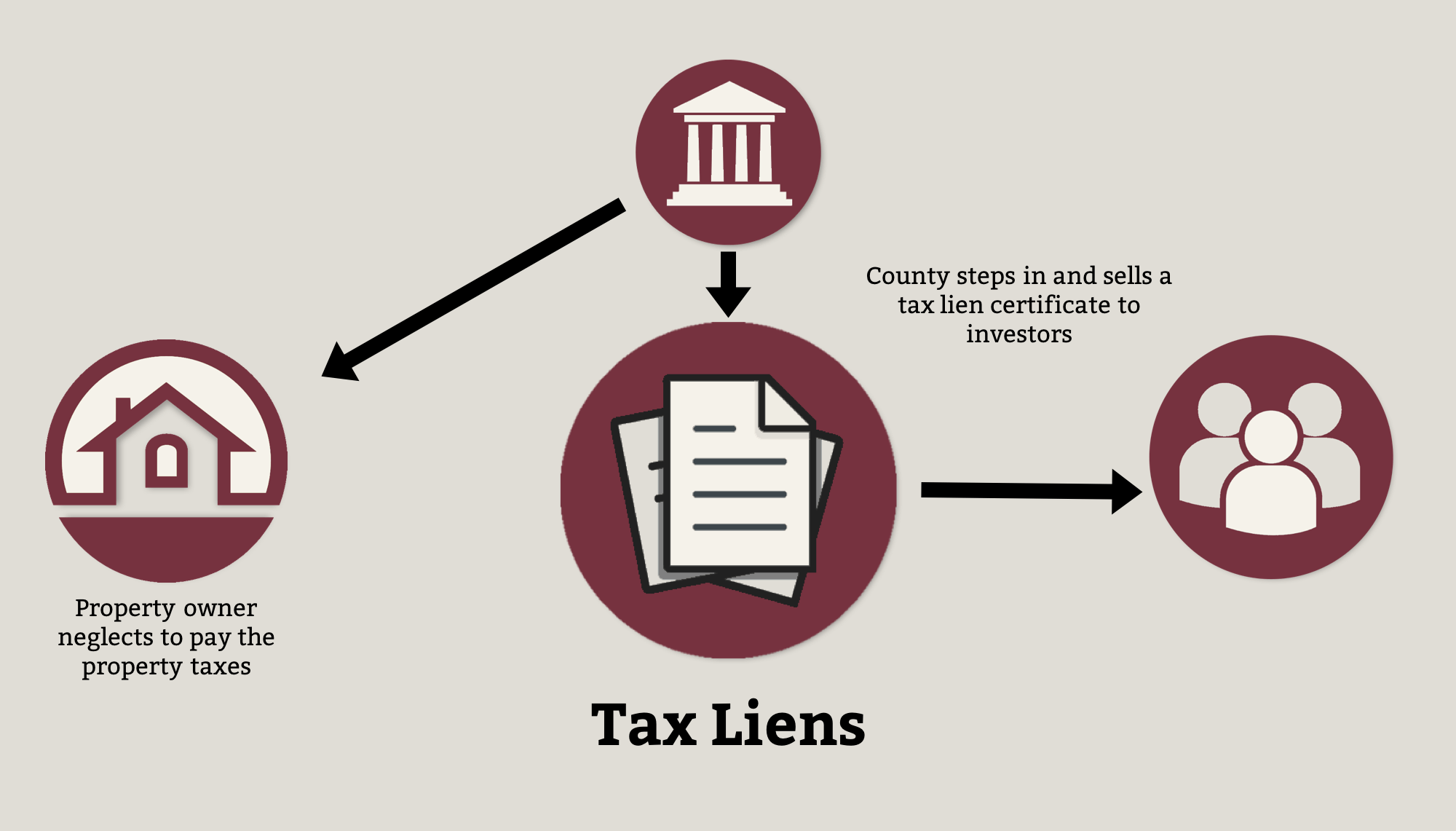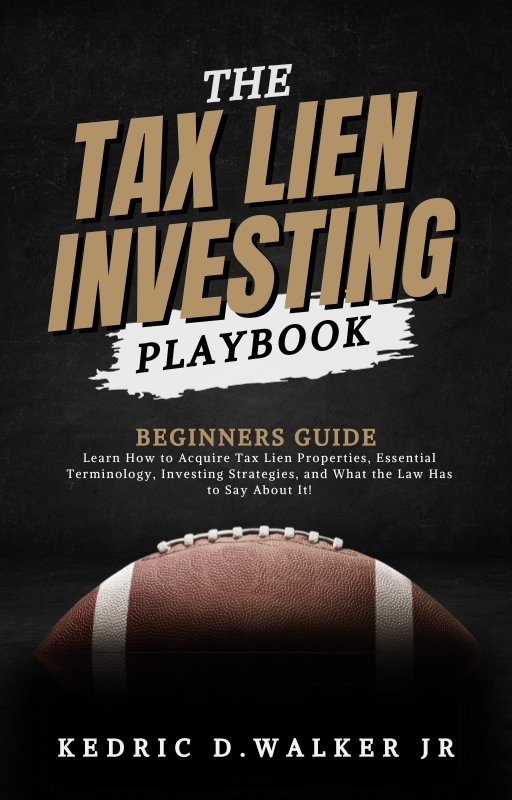All Categories
Featured
Table of Contents
Tax obligation lien investing can provide your portfolio direct exposure to realty all without needing to actually possess building. Experts, nonetheless, claim the procedure is complicated and advise that novice investors can conveniently obtain burned. Here's whatever you need to recognize concerning investing in a tax obligation lien certificate, including how it functions and the dangers entailed.
The notification generally comes prior to harsher activities, such as a tax obligation levy, where the Irs (INTERNAL REVENUE SERVICE) or regional or municipal federal governments can really confiscate a person's residential property to recuperate the financial obligation. A tax obligation lien certificate is developed when a homeowner has actually failed to pay their taxes and the neighborhood federal government problems a tax obligation lien.
Tax obligation lien certifications are typically auctioned off to capitalists wanting to earnings. To recover the overdue tax bucks, towns can after that market the tax lien certificate to personal capitalists, that care for the tax obligation expense in exchange for the right to collect that money, plus interest, from the property owners when they at some point repay their balance.
Tax Lien Investing Ny
enable for the transfer or project of overdue genuine estate tax liens to the economic sector, according to the National Tax Lien Association, a nonprofit that stands for governments, institutional tax lien financiers and servicers. Here's what the procedure resembles. Tax lien investors need to bid for the certificate in a public auction, and just how that procedure functions depends on the specific community.
Contact tax obligation authorities in your area to ask how those delinquent taxes are collected. Public auctions can be on the internet or face to face. Occasionally winning quotes most likely to the investor happy to pay the most affordable rates of interest, in a technique referred to as "bidding down the interest rate." The community develops an optimum price, and the prospective buyer using the most affordable rates of interest beneath that maximum wins the public auction.
Other winning proposals most likely to those who pay the greatest money amount, or premium, above the lien amount. What happens next for investors isn't something that occurs on a stock market. The winning bidder has to pay the entire tax expense, including the delinquent financial obligation, passion and fines. Then, the financier has to wait up until the residential property owners pay back their whole equilibrium unless they don't.
While some investors can be rewarded, others may be caught in the crossfire of complex rules and technicalities, which in the worst of situations can cause large losses. From a plain profit viewpoint, many financiers make their money based on the tax obligation lien's rates of interest. Rate of interest rates differ and depend upon the jurisdiction or the state.
Earnings, however, don't constantly amount to yields that high throughout the bidding procedure. In the long run, the majority of tax liens bought at public auction are marketed at prices between 3 percent and 7 percent nationally, according to Brad Westover, executive director of the National Tax Obligation Lien Organization. Prior to retiring, Richard Rampell, formerly the primary exec of Rampell & Rampell, a bookkeeping firm in Hand Beach, Florida, experienced this direct.
What Does Tax Lien Investing Mean
Then big institutional financiers, including financial institutions, hedge funds and pension funds, chased after those higher returns in public auctions around the country. The bigger investors assisted bid down rate of interest prices, so Rampell's group wasn't making substantial cash any longer on liens.
That seldom occurs: The tax obligations are normally paid prior to the redemption day. Liens likewise are very first in line for settlement, also before home loans. However, tax obligation liens have an expiry date, and a lienholder's right to confiscate on the building or to gather their investment expires at the same time as the lien.
Specific investors who are taking into consideration investments in tax obligation liens should, over all, do their homework. Professionals recommend avoiding residential or commercial properties with environmental damage, such as one where a gas terminal unloaded unsafe product.
Tax Lien Investing Guide
"You must actually understand what you're buying," states Richard Zimmerman, a partner at Berdon LLP, a bookkeeping firm in New york city City. "Be mindful of what the residential or commercial property is, the area and worths, so you do not buy a lien that you will not have the ability to gather." Prospective financiers must additionally have a look at the residential property and all liens versus it, in addition to current tax sales and list price of similar buildings.
"Individuals get a checklist of residential properties and do their due persistance weeks prior to a sale," Musa states. "Fifty percent the properties on the list may be gone due to the fact that the tax obligations obtain paid.
Secrets Of Tax Lien Investing

Westover states 80 percent of tax lien certifications are sold to participants of the NTLA, and the firm can typically pair up NTLA participants with the right institutional capitalists. That may make managing the procedure simpler, particularly for a novice. While tax obligation lien investments can offer a generous return, recognize the small print, details and policies.
"But it's made complex. You have to understand the information." Bankrate's added to an upgrade of this story.
Real estate tax liens are a financial investment particular niche that is overlooked by a lot of capitalists. Investing in tax obligation liens can be a lucrative though reasonably risky organization for those that are well-informed concerning real estate. When individuals or businesses stop working to pay their residential or commercial property tax obligations, the districts or other government bodies that are owed those tax obligations place liens against the residential properties.
How To Invest In Tax Liens
These insurance claims on collateral are likewise traded among investors who wish to generate above-average returns. Via this procedure, the town obtains its tax obligations and the capitalist obtains the right to accumulate the amount due plus passion from the debtor. The procedure hardly ever ends with the investor seizing possession of the building.
If you need to seize, there may be other liens against the building that keep you from taking ownership. You can additionally invest indirectly through home lien funds.
It properly ties up the home and stops its sale until the owner pays the tax obligations owed or the home is taken by the lender. For instance, when a landowner or house owner fails to pay the taxes on their building, the city or county in which the property lies has the authority to place a lien on the residential or commercial property.
Residential or commercial property with a lien connected to it can not be marketed or re-financed till the taxes are paid and the lien is gotten rid of. When a lien is provided, a tax obligation lien certification is created by the municipality that shows the quantity owed on the residential property plus any type of rate of interest or fines due.

It's approximated that an added $328 billion of residential or commercial property taxes was analyzed throughout the united state in 2021. The trend continues. Tax obligations on single-family homes were approximated to climb approximately 3.6% in 2022, to a total amount of $339.8 billion, and by 6.9% in 2023, to $363.3 billion. It's hard to examine across the country building tax lien numbers.
Table of Contents
Latest Posts
Tax Owed Homes For Sale
Nys Tax Foreclosures
Government Property Tax Sale
More
Latest Posts
Tax Owed Homes For Sale
Nys Tax Foreclosures
Government Property Tax Sale